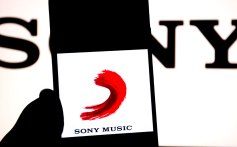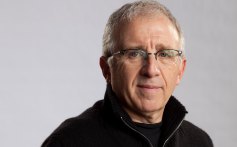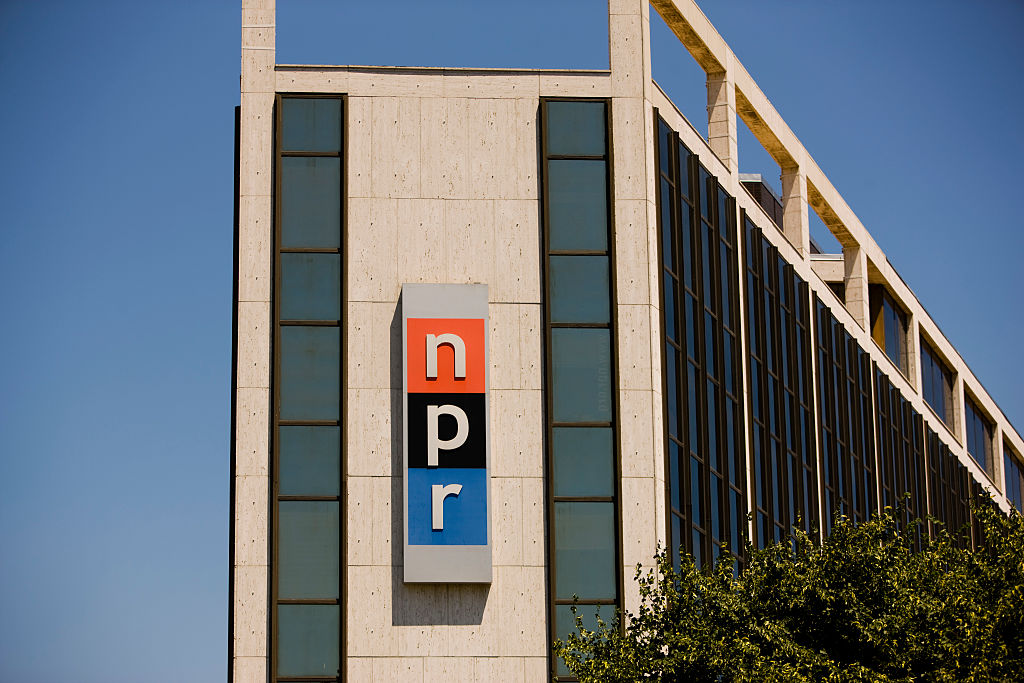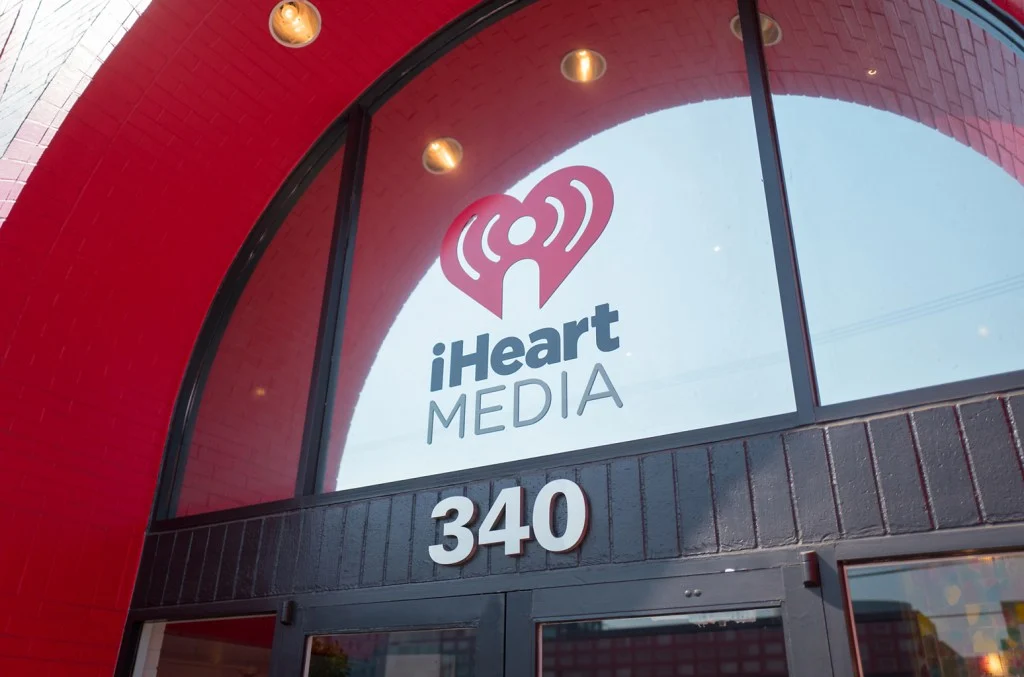Radio

Trending on Billboard
iHeartRadio’s chief programming officer and president, Tom Poleman, sent a letter to staff on Friday (Nov. 21), obtained by Billboard, pledging that the company doesn’t and won’t “use AI-generated personalities” or “play AI music that features synthetic vocalists pretending to be human,” among other promises.
The pledge marks the beginning of iHeart’s new “Guaranteed Human” program, which will also see the company publish only “Guaranteed Human” podcasts, according to Poleman’s letter.
Related
Starting Monday (Nov. 24), “‘Guaranteed Human’ is a core part of our brand,” Poleman wrote. “You’ll hear it in our imaging, and we want listeners to feel it every time they tune in.” iHeartRadio DJs must now add a line to their hourly legal IDs about being “Guaranteed Human.”
“Remember, this isn’t a tagline — it’s a promise,” Poleman added. “And it’s part of every station’s personality.”
News of the pro-human content initiative comes after recent headlines about the growth — and increasing indistinguishability — of AI-generated voices, songs and podcasts. According to French streaming service Deezer, 97% of participants in a recent study could not tell the difference between AI and human-made songs; the platform also estimates that 50,000 full AI-generated songs are added to their service every day. Billboard also recently revealed that AI music company Suno is generating 7 million tracks a day.
Related
While most of these AI songs aren’t receiving many streams or sales, there have been several breakthroughs in recent weeks. This includes Xania Monet, an artist whose work was recorded using Suno and paired with AI images. Her song “How Was I Supposed to Know?” recently debuted on the Adult R&B Airplay chart and has been put in rotation by a handful of radio stations across the U.S.
In terms of radio DJs, an AI radio personality called DJ Tori has taken over the undesirable overnight and weekend shifts at a hard-rock radio station in Hiawatha, Iowa, called KFMW Rock 108, according to a Rolling Stone report. Her voice and image — that of a fashionable tattooed rocker — are both AI-generated. Meanwhile, will.i.am launched RAiDiO.FYI, an interactive AI radio app featuring synthetic voices that tell you about the songs that are playing. Spotify also continues to push its AI DJ feature, programmed based on the voice and persona of one of its employees.
In the world of podcasting, a company called Inception Point AI, founded by a former Wondery executive, has more than 5,000 podcasts and is generating 3,000 episodes a week at a cost of $1 or less per episode.
To underscore his point to iHeart employees, Poleman added some stats, including that “70% of consumers say they use AI as a tool, yet 90% want their media to be from real humans,” and that “92% say nothing can replace human connection — up from 76% in 2016.”
Read the full letter below.
Related
Team,
A few weeks ago, I shared that iHeart is one of the last truly human entertainment sources and our listeners come to us for companionship, connection, and authenticity — something AI can’t replicate. We’re Guaranteed Human. We don’t use AI-generated personalities. We don’t play AI music that features synthetic vocalists pretending to be human. And the podcasts we publish are also Guaranteed Human.
Thank you for leaning into our commitment to keep everything we do real and authentic. That’s what makes us special. And now we’re taking it a step further.
Starting Monday, 11/24, we’re making “Guaranteed Human” a core part of our brand. You’ll hear it in our imaging, and we want listeners to feel it every time they tune in. Here’s how:
Hourly Legal IDs:
We’re changing hourly legal IDs beginning Monday to say:
“(Station call letters/name), (city of license) an iHeartRadio station… Guaranteed Human” (with the iHeartRadio audio signature heartbeat).
These will run every hour on our stations.
Sweepers
To augment our legal IDs, we also want you to create fun, nonchalant sweepers that fit your station’s vibe and reinforce that we’re Guaranteed Human. Sweepers should end with the words “Guaranteed Human.” Drop them in every hour, between songs or talk content where it feels natural. Many stations will also start these on Monday, with others ramping up in the following weeks.
Attached are examples of the hourly legal ID and sweepers.
Remember, this isn’t a tagline — it’s a promise. And it’s part of every station’s personality. When listeners interact with us, they know they’re connecting with real voices, real stories, and real emotion. That’s our superpower.
A little about why this matters so much; research says:
70% of consumers say they use AI as a tool, yet 90% want their media to be from real humans.
92% use social media, but 2/3 say it makes them feel worse and more disconnected.
92% say nothing can replace human connection — up from 76% in 2016.
9 in 10 say human trust can’t be replicated with AI.
To be clear, we do encourage the use of AI powered productivity and distribution tools that help scale our business operations – such as scheduling, audience insights, data analysis, workflow automation, show prep, editing and organization. Those tools help us reach more people efficiently, while preserving the human creativity and authenticity that define our brand.
We talk to our listeners constantly, and they tell us they are also using AI as a tool, but they tell us there’s a limit:
3/4 expect AI will complicate their lives in the next year and beyond.
82% are worried about the impact AI will have on society.
2/3 are worried about losing their jobs to AI.
And, funny enough, 2/3 even fear that AI could someday go to war with humans.
The bottom line is our research tells us that 96% of consumers think “Guaranteed Human” content is appealing. So, we’re leaning in.
Thank you for keeping it real and making “Guaranteed Human” something that our audience hears and feels every day.
Sometimes you have to pick a side — we’re on the side of humans.
Tom
Trending on Billboard Audio entertainment and satellite radio company SiriusXM Holdings said on Tuesday its chief financial officer Tom Barry will step down by the end of the year. Zac Coughlin, currently CFO for Tommy Hilfiger and Calvin Klein owner PVH Corp, was named to succeed Barry. Coughlin previously held CFO titles at the Nike […]
Trending on Billboard
Radio companies had mixed results in the third quarter in their efforts to build digital businesses, cut costs and manage a decline in broadcast advertising dollars as consumers shift to newer entertainment platforms.
iHeartMedia’s consolidated revenue of $997 million was down just 1.1%, well within the company’s guidance of a low single-digit decline. Excluding the impact of political advertising in the prior-year period, revenue was up 2.8%. CEO Bob Pittman said during the company’s earnings call on Monday (Nov. 10) that the advertising environment is “pretty good” and iHeartMedia is “not feeling anything” related to the U.S. government shutdown.
Related
An operating loss of $116 million stemmed from a $209 million impairment charge related to the value of iHeartMedia’s FCC licenses. Excluding the impact of the write-down and other extraordinary items, adjusted earnings before interest, taxes, depreciation and amortization (EBITDA), a common measure of profitability from ongoing operations, was flat at $205 million.
The multi-platform division, which includes iHeartMedia’s broadcast and network businesses, had revenue of $591 million, down 4.6% due to lower political advertising and what the company called “uncertain market conditions.” Adjusted EBITDA of $119.2 million marked an 8.3% decrease from the prior-year period, despite lower employee compensation costs.
The digital audio group, which includes podcasts, had revenue of $342 million, up 14%, and adjusted EBITDA of $130.3 million, up 30.3%. Podcast revenue increased by 22% to $140 million.
Based on trends for the top advertisers and advertising agencies, Pittman said he has “confidence” that the multi-platform division will return to revenue growth. “We’re feeling similar momentum to what other ad-supported companies have discussed right now: Spending is holding up, and discussions with advertisers are positive,” he noted on the company’s earnings call. Although iHeartMedia has not felt any impact from the government shutdown, Pittman conceded it “does add a level of uncertainty.”
Related
iHeartMedia said it remains on track to create $150 million in annual cost savings in 2025. In addition, the company took steps in the third quarter to save an additional $50 million in 2026, which COO/CFO Rich Bressler said will come mainly from the multi-platform division.
Looking ahead, iHeartMedia expects fourth quarter revenue to be down in the low single digits. Adjusted EBITDA is expected to be $200 million to $240 million, down from $246 million in the prior-year quarter because of political advertising in the 2024 election year. The multi-platform division is expected to be down in the low single digits. Digital revenue is expected to grow in the high single digits, and podcast revenue specifically is expected to grow in the mid-teens.
Cumulus Media, the country’s third-largest radio broadcaster by revenue, reported that third-quarter revenue fell 11.5% to $180.3 million. CEO Mary Berner cited a “challenging” advertising environment and touted Cumulus’s efforts to cut costs and employ AI to improve efficiency. Broadcast revenue plummeted 17.2% to $115.0 million. Digital revenue fell 2.6% to $39.0 million but would have grown 8.4% without the losses of The Daily Wire and conservative commentator Dan Bongino, who left podcasting to become the deputy director of the FBI. Consolidated adjusted EBITDA fell to $16.7 million from $24.1 million a year earlier.
Related
Townsquare Media faced “numerous headwinds,” CEO Bill Wilson said in a statement, but the company met its previous guidance on revenue and adjusted EBITDA. Revenue dropped 7.4% to $106.8 million and would have dropped 4.5% if political advertising were excluded. Adjusted EBITDA fell 13.5% to $3.4 million.
iHeartMedia shares fell 6.0% to $4.29 on Tuesday (Nov. 11) following the earnings announcement on Monday afternoon. The stock had jumped 55.9% in the week ended Nov. 7 following a report that the company was in talks with Netflix to distribute its podcast content.
Cumulus Media shares soared 31% to $0.135 the day after the company released earnings on Oct. 30. The stock has since lost all of those gains and more, however, and closed at $0.10 on Tuesday (Nov. 11).
Townsquare Media shares fell 11.3% to $5.42 on Monday following the quarterly earnings report. The stock rose 0.6% to $5.45 on Tuesday.
Trending on Billboard
Here’s a story that captures everything wrong with Washington: Billion-dollar corporation asks Congress to force car manufacturers to install AM radio in every vehicle — a government tech mandate worth billions of dollars to its bottom line — while refusing to pay the artists and rights owners whose music is the very foundation of their business.
Last Congress, lawmakers such as House Democratic Leader Hakeem Jeffries saw through this scheme and stood firm. Radio lobbyists went home empty-handed. Now they’re back, asking for the same corporate handout, and still refusing to pay artists a dime.
Related
Before you say, “But who listens to AM/FM radio in 2025?”, ask yourself this question: Why are corporate radio lobbyists fighting so hard for this government mandate? Because keeping radio in cars is worth almost $14 billion in advertising every year. And why is it worth that much? Because hundreds of millions of Americans still listen to AM/FM radio every week.
Big Radio spent over $13 million lobbying Congress last year, which doesn’t even include the millions they contributed to political campaigns, to protect their golden goose at the expense of artists.
Corporate radio lobbyists engage in a cynical game of claiming something we all know isn’t true. They claim artists should be satisfied that “promotion” on radio is good enough compensation. But the days of Americans discovering music on AM/FM radio are long gone. Social platforms like YouTube and TikTok are where music breaks now. Last year, 84% of Billboard Global 200 songs went viral on TikTok first. Radio adapted by abandoning discovery and repeatedly playing popular songs radio listeners already know — in a single day recently, one iHeart station played songs by six major artists 112 times. One station. In a single day. Without paying a penny to the performers.
That isn’t promotion. It’s exploitation.
Related
That’s why the last Congress rejected radio lobbyists’ efforts to pass the AM in Every Vehicle Act. And why they must again reject it unless radio corporations agree to tie it to the American Music Fairness Act that ensures artists are paid fairly for radio plays.
Under the American Music Fairness Act, small and community stations would only have to pay between $10 and $500 a year to play all the music they want. The bill also gives radio corporations the opportunity to tell the independent Copyright Royalty Board what they think the performance royalty rate should be. If radio conglomerates believe their airplay has promotional value, they can make their case.
For some reason, AM/FM radio companies think they are special and that the principles of copyright shouldn’t apply to them. Every other platform pays artists for the work they do. Spotify. Pandora. SiriusXM. Only AM/FM radio — the most established music platform — claims it should be exempt from this concept.
For years, corporate radio lobbyists engaged in cynical practices to block music legislation. But now they are the ones who want Congress to act. And that gives music creators power — and they are speaking out with one voice.
Related
Over 300 artists – from Aerosmith to Barbra Streisand to Jelly Roll to Mariah Carey – wrote Congress earlier this year calling for passage of the American Music Fairness Act. This was an unprecedented display of artist unity for fair pay.
And just this week, Boyz II Men, Gloria Gaynor, Mike Love, Sammy Hagar, Smokey Robinson and others called on congressional leaders to pair the AM bill with the American Music Fairness Act. Their message was simple: “When you save the radio industry by mandating its technology remain in cars, we ask that you save the musician too and allow us to be paid fairly when our music is played.”
Artists have never been this fired up. Perhaps that’s because, like the rest of America, they are fed up with our workers being taken advantage of. This is about priorities. Big Radio corporations want Congress to mandate that their product be installed in every new car sold in America — government intervention to protect corporate profits. Meanwhile, musicians are simply asking to be paid for their work.
The solution is simple: If radio corporations want billions in government-mandated protection, they need to start paying the workers whose labor generates their wealth.
No corporate handouts without worker fairness. No radio without royalties.
Michael Huppe is the president and CEO of SoundExchange, where he champions creators and spearheads the use of technology, data and advocacy to power the future of music. To date, SoundExchange has distributed more than $12 billion in digital performance royalties to a growing community of more than 800,000 music creators. Michael is also an adjunct professor at Georgetown Law School, a published author, lecturer and active community member. He is a member of YPO, Forbes Business Council, and Fortune Brainstorm Trust, with opinions published in Variety, Rolling Stone, The Wall Street Journal, Music Business Worldwide, Billboard and The Hill.
Jelly Roll, Tate McRae, Mariah Carey, Maroon 5 and Ed Sheeran are among the artists set to perform at the 2025 iHeartRadio Music Festival. Hosted by Ryan Seacrest, the event will be held on Sept. 19 and Sept. 20 at T-Mobile Arena in Las Vegas.
The lineup will also include performances by Bryan Adams, Feid, GloRilla, John Fogerty, Justice, Lil Wayne, LL COOL J, Sammy Hagar, The Offspring and Tim McGraw, with more to be announced.
Trending on Billboard
On each of those two nights, the 2025 iHeartRadio Music Festival presented by Capital One will broadcast live via iHeartMedia radio stations throughout the country across more than 150 markets. Hulu will be the official streaming destination of the festival, with performances livestreamed each night exclusively to all Hulu subscribers. Additional information about the livestream will be posted across Hulu’s platform and social media channels.
Tickets go on sale to the general public on AXS.com beginning Friday, June 13, at 2 p.m. ET/ 11 a.m. PT.
Eligible Capital One cardholders will have priority access to presale tickets for the iHeartRadio Music Festival beginning Wednesday, June 11, at 10 a.m. PT/1 p.m. ET through Friday, June 13, at 10 a.m. PT/1 p.m. ET or while presale tickets last. Cardholders will also be able to add a Capital One Access Pass to their purchase to enjoy an exclusive pre-show party with LL COOL J on Friday or Jelly Roll on Saturday, which includes food, drinks and a private performance. Pre-sale info and tickets will be available at iHeartRadio.com/CapitalOne.
In addition, throughout a summerlong on-air and online promotion, iHeartMedia station listeners across the country will have chances to win exclusive trips to Las Vegas.
The iHeartRadio Music Festival will be executive-produced by John Sykes, Tom Poleman and Bart Peters from iHeartMedia and Diversified Production Services (DPS). iHeartMedia will also executive-produce the livestream and VOD special on Hulu.
For more details about the iHeartRadio Music Festival, visit iHeartRadio.com/festival. iHeart notes that artists and/or the event are subject to change or cancellation without notice.
NPR, the longstanding public broadcasting network, is standing up to President Donald Trump’s war on the media after filing a lawsuit this week. On Tuesday (May 27), NPR and three Colorado public radio stations filed a lawsuit stating that President Trump’s executive order to cut funding for the network and PBS is unconstitutional.
In a report from the network, NPR, Colorado Public Radio, Aspen Public Radio, and KSUT filed a suit in a District of Columbia court alleging that Trump’s sweeping executive order to end funding to the entities is a violation of their constitutional right to free speech.
“It is not always obvious when the government has acted with a retaliatory purpose in violation of the First Amendment. ‘But this wolf comes as a wolf,’” reads a portion of the lawsuit filing. “The Order targets NPR and PBS expressly because, in the President’s view, their news and other content is not ‘fair, accurate, or unbiased.’”
President Trump, White House budget director Russell Vought, Treasury Secretary Scott Bessent, and Maria Rosario Jackson, the chair of the National Endowment for the Arts, are all named as defendants.
“The Executive Order is a clear violation of the Constitution and the First Amendment’s protections for freedom of speech and association, and freedom of the press,” NPR President and CEO Katherine Maher added in a statement.
U.S. District Court Judge Randolph D. Moss is overseeing the matter. The same judge is also overseeing a similar case with the Corporation for Public Broadcasting (CPB) also suing President Trump.
—
Photo: Brooks Kraft / Getty
HipHopWired Featured Video

On Friday (May 23), 13 artists were presented with iHeartRadio Titanium Awards for reaching 1 billion spins of their songs across iHeartRadio stations in 2025 — and Billboard can exclusively reveal the new honorees. Artists that reached the milestone include: Benson Boone with “Beautiful Things”; David Guetta and Bebe Rexha with “I’m Good (Blue)”; Doja […]
In a year filled with economic uncertainty and instability, iHeartMedia is seeing “generally stable ad spend,” CEO Bob Pittman said during the company’s first quarter earnings call on Monday (May 12).
The radio and podcasting giant had first-quarter revenue of $807 million, up 1.0% from the prior-year period. Excluding political advertising, which was boosted by the 2024 elections, revenue increased 1.8%.
The multi-platform segment, which includes broadcast stations, had revenue of $473 million, down 4%. But Pittman expressed cautious optimism that radio advertisers are remaining with the format. Premiere Radio Networks, which represents national advertising, was up 2% in the quarter. “I think that’s sort of an indication that the bigger advertisers are hanging in there,” he said.
The 1% revenue uptick was a positive for a company that stood to bear the brunt of an advertising slowdown due to U.S. tariff policy. Analysts had expected revenue to decline 1.6% to $786 million.
Trending on Billboard
iHeartMedia is increasingly a podcast company, and the digital audio group continued to be a growth source. In digital, revenue rose 16% to $277 million and adjusted earnings before interest, taxes, depreciation and amortization (EBITDA) improved 28% to $87 million. The company had a unique podcast audience of 32.7 million and 177 million streams and downloads in March — both No. 1 in the U.S., according to Podtrack.
“We’re beginning to feel the flywheel effect of being the strong number one in podcast publishing. Our podcasting financial discipline and our focus on the high-margin podcast publishing sector continue to fuel what we believe is the most profitable podcasting business in the United States and to accelerate our growth,” said Pittman.
The audio and media division’s revenue fell 14% to $59.3 million due primarily to non-recurring contract termination fees earned by Katz Media last year. The segment’s adjusted EBITDA dropped 33% to $15.8 million.
The company expects its second quarter consolidated revenue to be down in the low single digits compared to the same period last year. April “pacing” was down 2% year over year, according to CFO Rich Bressler. For iHeartMedia to hit its full-year guidance and avoid a possible down advertising market, Bressler added, the company will need “some positive movement in the macro [environment] and improvement to the uncertainty in the back half of the year.”
Shares of iHeartMedia jumped 19.3% to $1.54 in early trading Tuesday (May 13) but had fallen to $1.22, down 5.4%, by midday.
iHeartRadio is facing a class-action lawsuit from subscribers after disclosing that several of its radio stations were hacked months ago, exposing Social Security numbers, financial information and other personal details.
The lawsuit came a week after the radio giant warned customers in regulatory filings last week that “an unauthorized actor viewed and obtained files” at a “small number of our local stations” in December, potentially stealing SSNs, dates of birth, and credit card info.
iHeart said it “immediately implemented our response protocols” to contain the hack, and is offering free credit monitoring to those affected. The company also said it had “strengthened its existing security measures” to “help prevent something like this from happening again.”
Trending on Billboard
Those assurances were not enough for Cheryl Shields, a subscriber who filed a proposed class action against iHeart on Wednesday in New York federal court, seeking to represent customers nationwide whose data was compromised. In doing so, her attorneys blasted iHeart for waiting four months to warn subscribers that their data was at risk.
“As a result of this delayed response, plaintiff and class members had no idea for four months that their private information had been compromised, and that they were, and continue to be, at significant risk of identity theft and various other forms of personal, social, and financial harm,” Shield’s lawyers write. “The risk will remain for their respective lifetimes.”
The data exposed in the iHeart breach “represents a gold mine for data thieves,” the lawyers write, and there has been “no assurance offered by iHeart that all personal data or copies of data have been recovered or destroyed.”
A spokesperson for iHeart did not immediately return a request for comment on Thursday.
Such lawsuits are common following data breaches. After the credit-reporting company Equifax suffered a 2017 data breach that exposed the personal data of nearly 150 million Americans, the company agreed to pay $425 million to resolve nationwide class-action litigation filed by consumers.
The scale of the iHeart data breach is undoubtedly far smaller. The company did not disclose in regulatory filings how many total victims were involved nationwide, though a notification filed in Maine said only three subscribers in that state had been impacted. Disclosure forms were also filed in California and Massachusetts, as first reported The Record.
In technical legal terms, Wednesday’s lawsuit accused iHeart of negligence, arguing that the company had a legal duty to safeguard consumer’s data.
“As a national media and audio provider in possession of millions of customers’ private information, iHeart knew, or should have known, the importance of safeguarding the
Private Information entrusted to it by Plaintiff and Class Members and of the foreseeable consequences they would suffer if iHeart’s data security systems were breached,” Shields’ lawyers write. “Nevertheless, iHeart failed to take adequate cybersecurity measures to prevent the data breach.”
Moby is currently matching donations to Los Angeles NPR affiliate KCRW, up to $10,000. The donation match began Tuesday (May 6) and extends through midnight on Wednesday.
“As we all know, public radio is in grave danger right now,” the electronic artist says in an ad currently airing on the station about this donation match. “If you care about KCRW; if you care about public radio and about free access to music and information, this is a very important moment to act.”
This special effort happens amid KCRW’s annual spring pledge drive, which this year has been titled “Mission Critical” due to an executive order signed last week by President Trump that directed the board of directors at the Corporation for Public Broadcasting to “cease federal funding for NPR and PBS,” the nation’s primary public broadcasters. The order was made on the claim of ideological bias by NPR and PBS.
Trending on Billboard
As reported by Billboard last week, this move follows a pattern of Trump leveraging executive powers to defund or dismantle institutions he deems oppositional, including cultural and educational organizations like the Kennedy Center and National Endowment for the Humanities. The legality of Trump’s order is in question, however, as CPB is a private nonprofit entity and not a federal agency.
In any case, KCRW’s chief development officer Jill Smayo tells Billboard that “the funding for public media, both NPR and PBS, is in flux right now… We’re not exactly sure what’s going to happen at this point. It’s evolving. The Corporation for Public Broadcasting is investigating more what this truly means and what will come of this, but what is at stake for KCRW specifically is $1.3 million dollars annually that we receive from the Corporation for Public Broadcasting.”
Such “challenge grants” like Moby’s current $10,00 offer are a common element of KCRW pledge drives, with various public figures, often musicians, actors and other artists, making the offer in order to incentivize donations. As part of Moby’s offer, one person who donates will win tickets to performances he’s doing as part of the Cercle Odyssey tour in downtown Los Angeles on Friday, May 9. The musician also relaunched his MobyGratis sound library, which offers creators high-quality, royalty free music to use in projects.
“We’re very grateful for his belief that KCRW is a treasure for the curious and the artistic and worthy of supporting,” says Smayo. The Mission Critical spring pledge drive extends through May.

 State Champ Radio
State Champ Radio 








